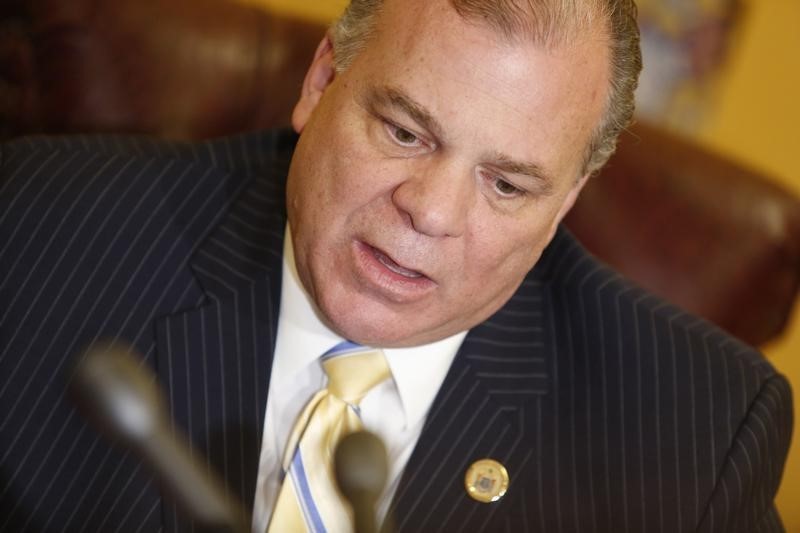By Hilary Russ
(Reuters) - A top New Jersey Democrat wants the federal government to create a low-interest loan program to rescue states with big public pension problems.
State Senate President Steve Sweeney called on Wednesday for a nationwide pension debt restructuring plan under which the U.S. Federal Reserve would offer low-interest loans to state governments to pay down unfunded pension liabilities.
The country has racked up nearly $1 trillion of unfunded liabilities altogether in its state-run retirement systems, according to the latest estimate from Pew Charitable Trusts. Other projections have put the number even higher.
New Jersey's badly underfunded pension system was cast further into the spotlight last year when Governor Chris Christie, now a 2016 Republican presidential candidate, slashed the state's contribution because of a revenue shortfall.
Labor unions sued, saying the cuts violated a promise Christie himself made, in 2011 pension reforms, to ramp up to full contributions.
But Christie won the battle in the state's highest court. The decision provided breathing room for the stressed state budget, but the pension problem lingers long term.
New Jersey would have to pay $6 billion on average annually for 30 years to pay off its existing $51 billion unfunded liability, the third largest in the nation, Sweeney said.
But under his proposal, the Garden State could take out a $50 million federal loan at a low 1 percent interest rate, putting the proceeds into its retirement system. If that happened in fiscal year 2017, it would cut annual pension contributions, including the loan repayment, in half to about $3 billion, he said.
States that choose to participate would have to get voter approval for the repayment of the federal loan over 30 years.
In the statement, his office defended the loan program, saying it was "not a bailout. The requirement that voters approve repayment of the loans with interest guarantees that the Federal Reserve would not lose money on the program."
The Troubled Asset Relief Program, or TARP, passed during the 2008 financial crisis, used taxpayer money to buy stakes in distressed industries, including automakers and banks, which paid back the federal government once stabilized.
Retirement systems in several other states could be candidates, including Illinois, which at 39 percent is the worst funded, according to the Pew study. Kentucky, at 44 percent and Connecticut, at 48 percent, are also at the bottom of the list.
New Jersey's pension funds ranked 16th at 63 percent.
